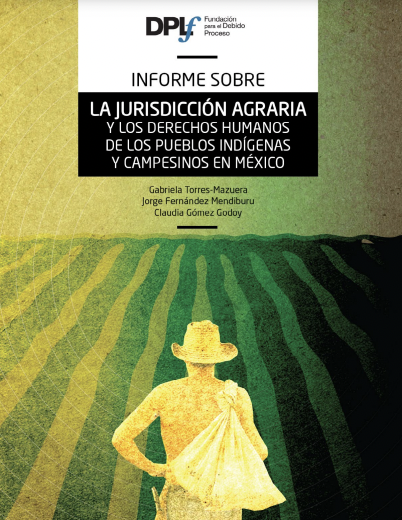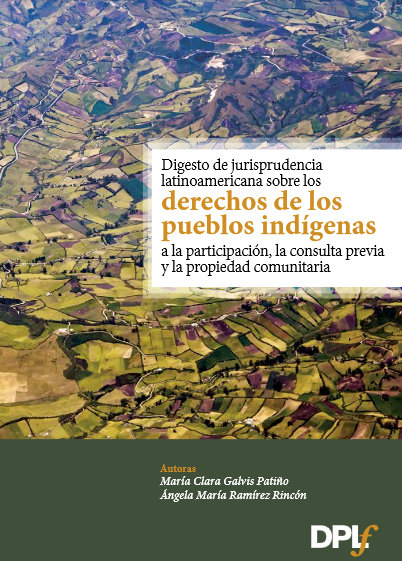Focal point
Location
Who We Are
History
DPLF was founded in 1996 by Professor Thomas Buergenthal and his colleagues from the United Nations Truth Commission for El Salvador, who were convinced that human rights could only be guaranteed by strong and independent national judicial systems. Because of this realization, they created DPLF, an organization dedicated to the promotion of the rule of law and human rights in the Americas’.
Mission
DPLF is a 501 (c) (3) nonprofit, nongovernmental organization based in Washington, D.C., working to strengthen the rule of law and promote respect for human rights in Latin America through applied research, strategic alliances with actors in the region, advocacy activities and the effective communication of our message.
Vision
DPLF envisions a Latin America where civil society participates fully in the consolidation of the rule of law - through the use of national and international legal instruments - and where judicial institutions are independent, transparent, accessible, and able to fulfill their role in strengthening democracy.
Values
Respect
DPLF values and takes into account the different perspectives of the people who interact directly and indirectly with the organization.
Commitment
The goal of our work is to achieve full respect for the rule of law and human rights,as enshrined in international norms and standards. We work passionately to achieve our goals and implement our strategies
Proactiveness
We evaluate situations by looking for opportunities for improvement. We make constructive and realistic suggestions about how to address challenges in order to achieve better results.
Rigor
Our work is meticulous and precise; our research, publications, and declarations are reasoned and well-founded.
Constructiveness
DPLF views situations from a perspective of opportunity. We make constructive and realistic suggestions about how to carry out goals and achieve results.
Effectiveness
DPLF optimizes its human and financial resources. We have the capacity to adapt to changing contexts and to make decisions with agility.
Members:
Resources
Displaying 1 - 5 of 5Informe sobre la jurisdicción agraria y los derechos humanos de los pueblos y campesinos de México
Este informe ofrece un análisis de la jurisdicción agraria en México a la luz de su evolución histórica y de los estándares internacionales que, en materia de derechos humanos de los pueblos indígenas, México ha suscrito y se ha comprometido a cumplir. En México hay varias instituciones muy importantes para la vigencia de los derechos humanos de los pueblos indígenas, comunidades y ejidos sobre sus tierras y territorios: i) los Tribunales Agrarios, jurisdicción especializada que, en principio, es creada para proteger estos derechos sobre tierra y territorio; ii) la Procuraduría Agraria, ins
Manual para defender derechos de los pueblos indígenas y tribales
Publicado originalmente en el 2009, esta versión actualizada del Manual busca ofrecer a las personas y pueblos indígenas y a las organizaciones que los representan, información y herramientas que puedan contribuir a la defensa de sus derechos.
Manual para defender os direitos dos povos indígenas
INTRODUÇÃO Apesar do importante avanço registrado em matéria de proteção dos direitos dos povos indígenas no cenário internacional, muitas organizações, povos e pessoas indígenas desconhecem os instrumentos internacionais que protegem seus direitos, assim como os mecanismos existentes para os fazer cumprir. O presente manual pretende, portanto, oferecer a pessoas e povos indígenas, assim como às organizações que os representam e defendem informações e ferramentas concretas que possam contribuir com a defesa de seus direitos.
Digesto de la jurisprudencia latinoamericana sobre los derechos de los pueblos indígenas a la participación, la consulta previa y la propiedad comunitaria
La obra jurídica elaborada por María Clara Galvis Patiño y Ángela María Ramírez Rincón sistematiza y analiza decisiones judiciales de altas cortes de nueve países de América Latina: Argentina, Bolivia, Colombia, Chile, Ecuador, Guatemala, Nicaragua, Panamá y Perú.
El citado Digesto refleja los debates y problemas jurídicos que han tenido que resolver los jueces ante el alto número de conflictos sociales relacionados con la propiedad de la tierra, el territorio y los recursos naturales de los pueblos indígenas.
Derecho a la consulta de los pueblos indigenas en el Peru
El Instituto de Defensa Legal, la Fundación para el Debido Proceso Legal, la Clínica de Derechos Humanos de la Facultad de Derecho de la Universidad de Seattle, en colaboración con el Centro Amazónico de Antropología y Aplicación Práctica (CAAP), la Asociación Paz y Esperanza, la Asociación Pro Derechos Humanos (APRODEH), Derecho Ambiente y Recursos Naturales (DAR), la Asociación Servicios en Comunicación Intercultural y CARE Perú, solicitaron a la Honorable Comisión Interamericana de Derechos Humanos (en adelante CIDH, Comisión Interamericana, Honorable Comisión o Comisión) una audiencia p






